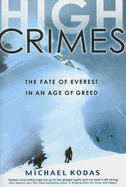Where do bookstores come from? Jackie Tanase, Ellen Ward and Karen
Schwettman, co-owners of FoxTale Book Shoppe, Woodstock, Ga., met in "a
creative writing class, ran into a fox and a whole new chapter started
to unfold," the Atlanta Journal-Constitution
reported. "As Ward and Schwettman approached their 50th birthdays in
2006, they took a trip to Denver. They visited an independent bookstore
there and were hooked."
On Valentine's Day last year, the
three friends "donned their signature fedoras" and closed the deal on a
loan. "Congratulations," they said, handing out cigars like proud
parents. "It's a bookstore."
The fox? That's another story.
---
The
Oxford, Ohio, Chamber of Commerce honored Howard Dubois, owner of
Dubois Book Store, with a Lifetime Achievement Award, according to the Oxford Press.
"Howard
DuBois opened his bookstore while still an undergrad at Miami
University, over 60 years ago," said attorney Jim Robinson. "Since that
time, he has operated his bookstore business with distinction. He has
survived fire which destroyed his store, changing business mores,
consumer demands and the technological explosion."
---
Canada's
oldest bookstore, the Book Room, Halifax, Nova Scotia, will begin "an
orderly shutdown of its retail store and dispose of its inventory" over
the next few weeks and will close at the end of March, store president
Charles Burchell told CBC News.
"I
am extremely disappointed to make this announcement as the Book Room
has been an institution in Nova Scotia," he continued. "The bookstore
has survived two World Wars, the Great Depression and economic ups and
downs over its 169 year history."
---
Noting that "quirky books abound in Tulsa [Okla.] stores," the Collegian
touted "several used bookstores that can quench the desire for books
with character, and often on the cheap." Among the bookshops profiled
were Oak Tree Books, Gardner’s Used Books and Quicksilver Used and Rare
Books.
---
Daniel Menaker, former Random House executive editor and fiction editor at the New Yorker, will host a new online book show called Titlepage, the first of which appears on March 3 on titlepage.tv, according to today's New York Times. Menaker will lead a group of authors in discussions that are modeled in part after Apostrophes, the popular French book discussion TV show, Charlie Rose and others. The second show will be posted two weeks after the first.
---
Paz & Associates's next workshop for prospective booksellers is being held February 25-29 on Amelia Island, Fla., near Jacksonville. For more information, go to pazbookbiz.com.
---
A few more football titles join our pre-Super Bowl huddle:
The Pigskin Rabbi by Willard Manus (Breakaway Books, distributed by Consortium, $15, 9781891369230/1891369237). "Young Orthodox rabbi Ezekiel 'Ziggy' Cantor becomes the quarterback of the New York Giants, drilling passes with godlike accuracy, kicking miraculous field goals, playing out of pure love for the game, and catapulting the team toward invincibility. The fans love it, and chant lustily in Yiddish. The entire team, convinced of the luck of the Jewish, starts speaking Yiddish and eating matzoh ball soup. It's an over-the-top farce, and an outrageous satire of the classic American sports fantasy. Best of all--the Giants win the Super Bowl!"
[Thanks to Garth Battista of Breakaway!]
---
And from a blog by Michael Merschel, assistant arts editor/books, at the Dallas Morning News:
"Twelve Mighty Orphans: The Inspiring True Story of the Mighty Mites Who Ruled Texas Football by Jim Dent.
"The Blind Side by Michael Lewis, a look inside the world of an immense--and immensely talented -- high school athlete. Our critic said, "Mr. Lewis is a terrific reporter and a gifted prose stylist. He absorbs the vibrations of the world he immerses himself in without getting carried away."
"And, of course, the just-published Greatest Team Ever, which Cowboys fans might want to flip through while two morally inferior teams battle for the trophy that every true Dallas resident knows is the rightful property of Jerry Jones."
---
Go, Giants!






SHELFAWARENESS.0213.S4.DIFFICULTTOPICSWEBINAR.gif)





SHELFAWARENESS.0213.T3.DIFFICULTTOPICSWEBINAR.gif)


 Before his death in January, Sir Edmund Hillary expressed deep dismay at what had become of mountaineering on Mt. Everest, whose summit he, with Tenzing Norgay, was the first to reach. "Human life," he said, "is far more important than just getting to the top of a mountain." In this disturbing, fascinating book, Michael Kodas illustrates with cold precision how that sentiment is shared by few, if any, of the people who now find their way to the world's highest peak.
Before his death in January, Sir Edmund Hillary expressed deep dismay at what had become of mountaineering on Mt. Everest, whose summit he, with Tenzing Norgay, was the first to reach. "Human life," he said, "is far more important than just getting to the top of a mountain." In this disturbing, fascinating book, Michael Kodas illustrates with cold precision how that sentiment is shared by few, if any, of the people who now find their way to the world's highest peak.